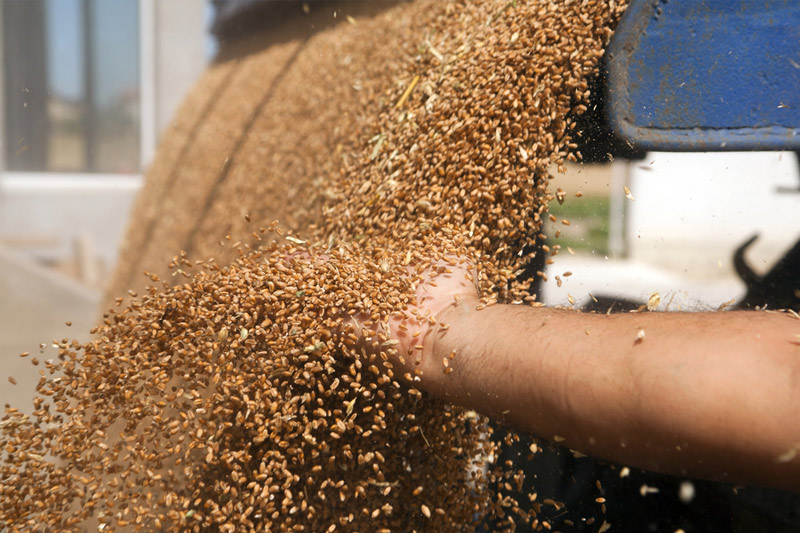By Ana Ionova
LONDON (Reuters) - An EU-funded index measuring biodiversity in food production is expected to be launched next year, giving investors a benchmark for assessing how companies and governments are making food systems more resilient to climate change.
Investing in food species such as drought-tolerant Ethiopian durum wheat or the frost-resistant Andean grain canahua can make food supply chains more resistant to climate shocks, according to research published on Tuesday by Bioversity International.
Pre-agricultural societies used about 7,000 edible plant species but modern food systems rely on just 30 varieties to feed the world, and the most common crops make up just 2 percent of material stored in gene banks.
Reliance on just a handful of species increases the risk of supply shocks as droughts, rising temperatures and unpredictable weather events become more common, according to the study by Bioversity International, a global research organisation.
Its new research will form the basis of the European Commission-funded Agrobiodiversity Index, which is expected to be launched in late 2018 and will include concrete criteria for measuring progress towards greater agrobiodiversity.
"The use of biodiversity can be incentivised by market mechanisms," said Roberto Ridolfi from the European Commission's International Cooperation and Development department. "In the future, little by little, it will become good practice in the stock market."
The mechanism will rank companies based on their efforts to advance biodiversity and can be used by governments to measure their own agricultural initiatives. Peru, for example, is considering using it to evaluate its agrobiodiversity programme.
The study says global food production must become more diverse and include species that are not widely grown now but could be better equipped to withstand hostile climates and disease.
Canahua, a little-known grain from the Andes in South America, has a higher threshold for frost than the more common quinoa, while the To'o banana from Papua New Guinea could be more resilient to disease than the standard Cavendish variety.
"What we see is that a lot of mainstream crops can be quite vulnerable to climate and pests and diseases," said Ann Tutwiler, director general at Bioversity International. "In part, because many of them come from a narrow genetic base."
Diversification could also help fight malnutrition globally by bringing little-known but highly nutritious foods into the mainstream. For instance, the To'o banana has far more vitamin A than the type commonly grown now.
